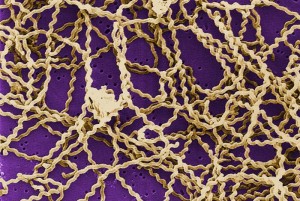NewsDesk @bactiman63
Vanuatu

As of 16 April 2023, 7 new Leptospirosis cases were reported between the 31 March to 16 April 2023, bringing the total to 59 leptospirosis cases recorded since the beginning of the year.
Of those 52 were laboratory confirmed and 6 clinically diagnosed. A total of 6 death were recorded.
New Caledonia
As of 16 April 2023, 101 Leptospirosis cases were reported since the 01 January 2023 with 6 new cases in April. Since the beginning of the year 2 deaths have been recorded.
Leptospirosis
According to the CDC, Leptospirosis is a disease caused by bacteria. Infected animals spread the bacteria through their urine (pee). When infected animals pee, the bacteria get into the water or soil and can live there for weeks to months.
You can be infected if you touch fresh water, soil, or other objects contaminated with infected animal urine. The most common ways to get infected is urine or contaminated water getting in your eyes, nose, mouth, or broken skin (such as a cut or scratch). You can also get infected by eating contaminated food or drinking contaminated water.
Subscribe to Outbreak News TV on YouTube
Some people with leptospirosis do not have any symptoms. When symptoms occur, they can include fever, headache, chills, muscle aches, vomiting, jaundice (yellow eyes and skin), red eyes, stomach pain, diarrhea, and sometimes a rash. Without proper treatment with antibiotics, people with leptospirosis may develop serious problems with their kidneys, liver, or lining of the brain and spinal cord (meningitis). In some cases, leptospirosis can cause death.
- Zamboanga City: Health officials say cases of hand, foot, and mouth disease is increasing
- Hawaii officials report 2nd measles case in Oahu
- Brazil: Minas Gerais reports more than 100K confirmed dengue cases
- Tanzania reports additional Marburg virus disease case
- California Condor death toll due to avian influenza rises
- What is Crohn’s Disease and How Is It Different from Other GI Issues?
- South Korea reports 10 additional local monkeypox cases
- Buenos Aires: Increase in ringworm infections linked to barbershops reported
- Canine schistosomiasis reported in 11 dogs in Southern California

